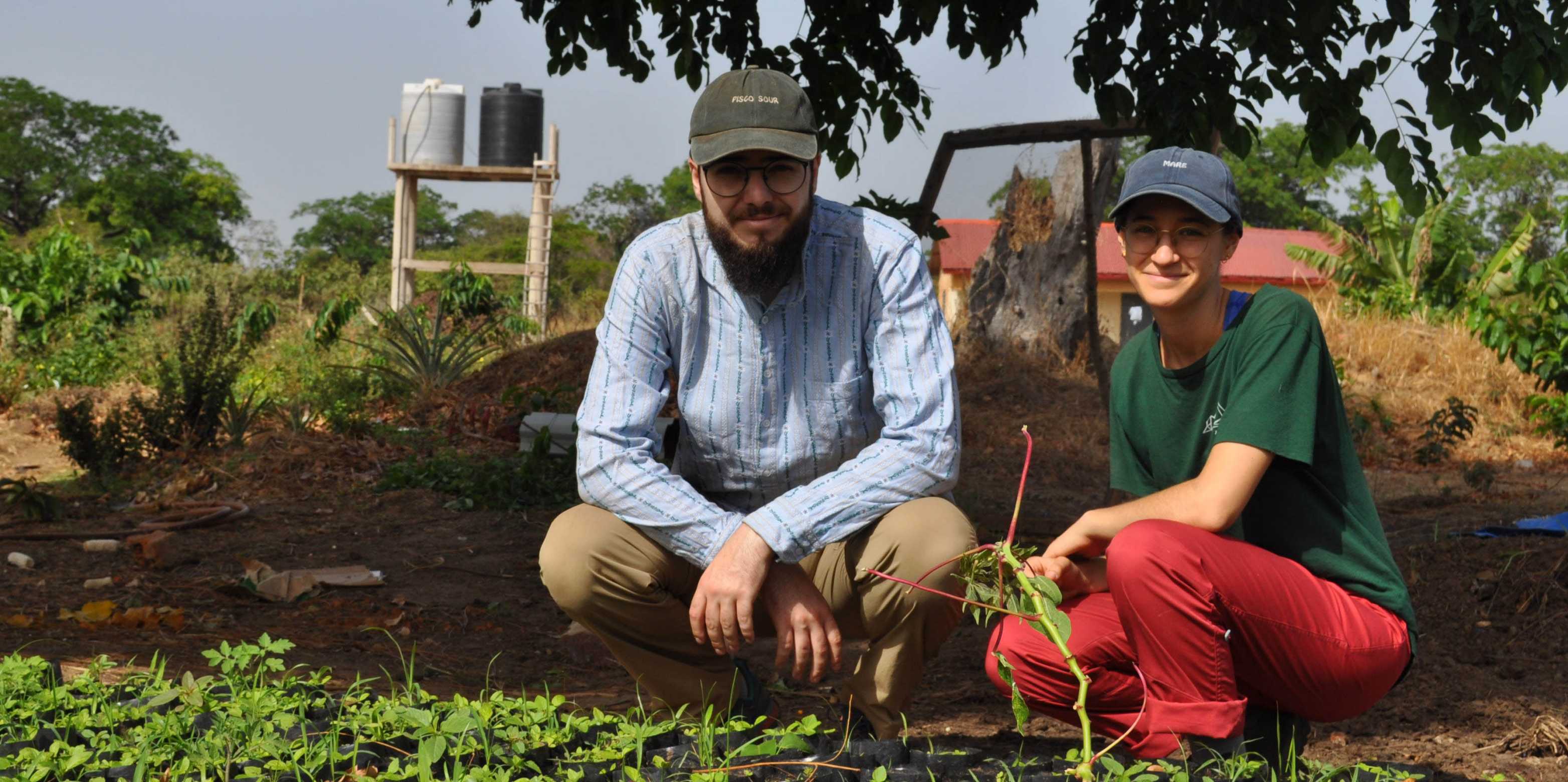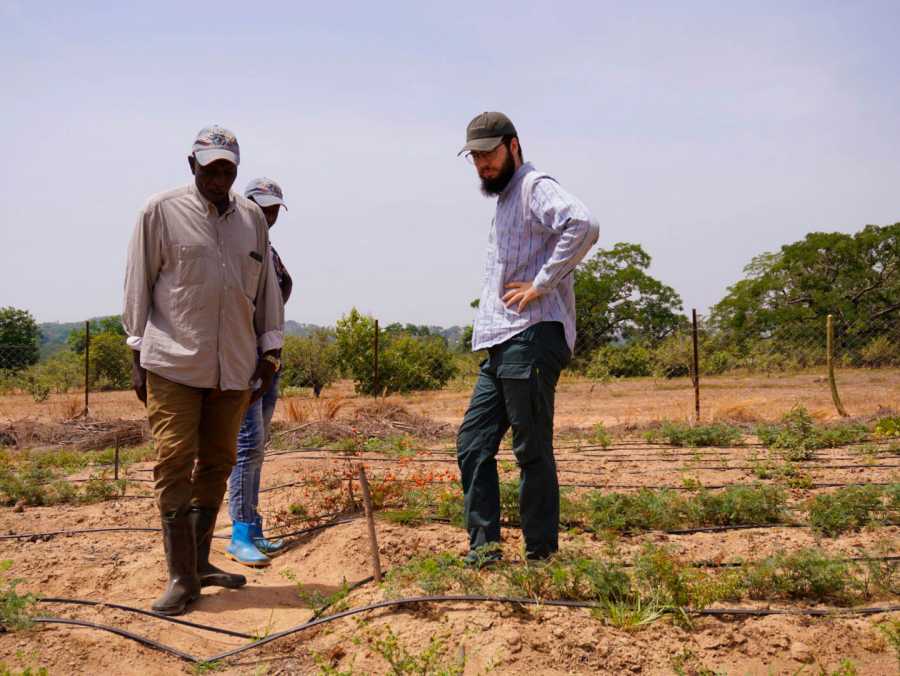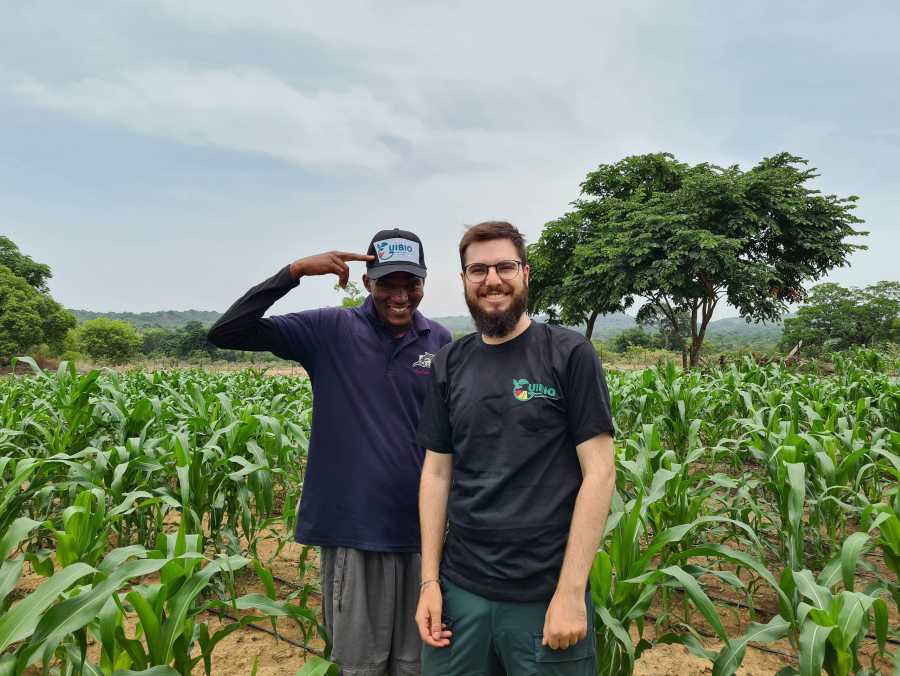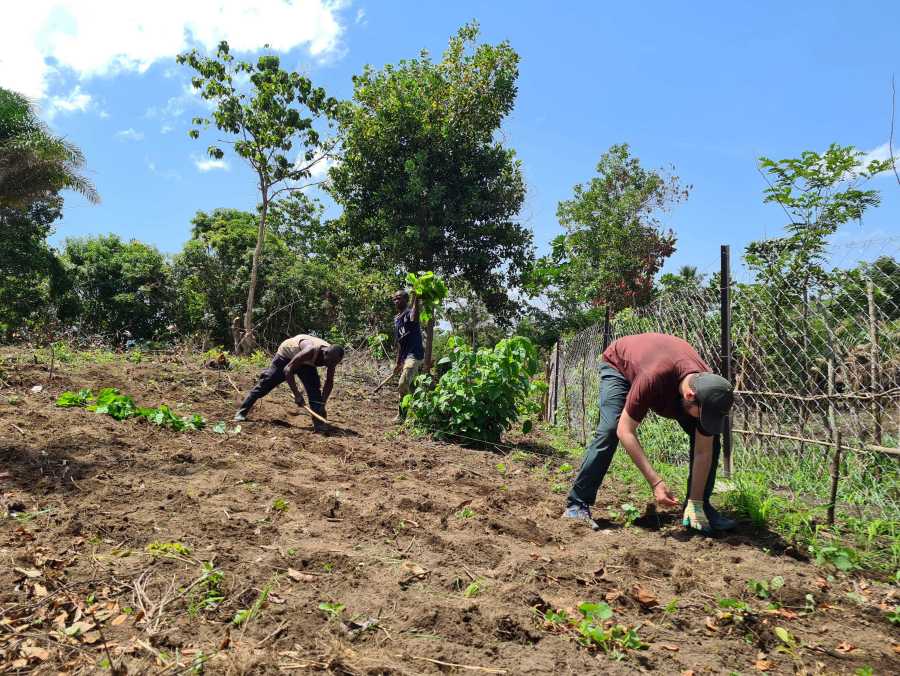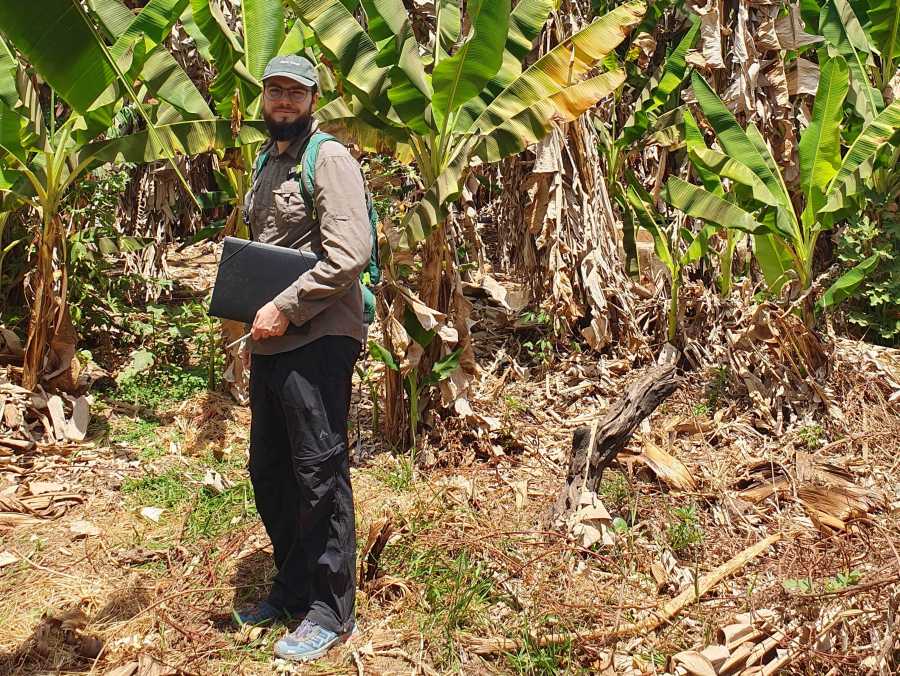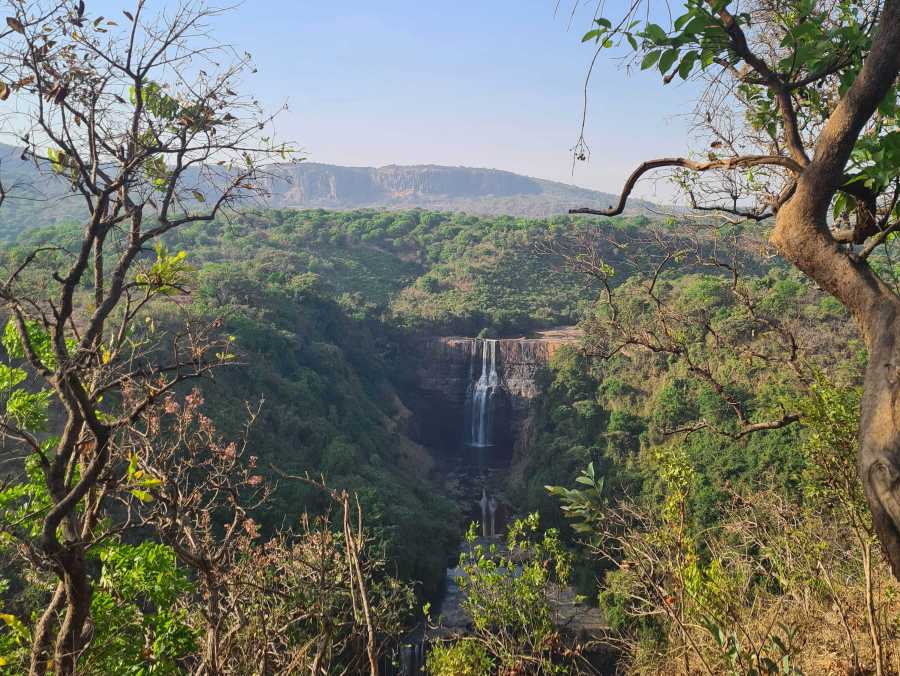What did you do in your projects?
My project was about agroecology for food security in Guinea. The aim is to set up an agroecological farm in all climate zones as a kind of prototype for training programmes. The Antenna Foundation was also working on establishing a brand for organic products and building a network for conferences and knowledge exchange. So far, there is no market for agroecological products in Guinea, but this should gradually change, especially with regard to the health of the population and the great dependence on imported seeds.
What did your day look like?
We had a meeting with the team every morning and then we usually went to the model farm about an hour outside the town of Labé. We then helped the project manager on site, for example setting up a compost or looking after the plants. Various agroecological principles are applied on the farm ─ including intercropping, where carrots are grown together with onions.
What caused you the most difficulties on site?
The topic of neo-colonialism was very much on my mind at the beginning. For Camille and me, it was always clear that we were interns and not just researchers. At the beginning, it was difficult to enter into an open dialogue with the local people, because of the language and local customs. I certainly didn't want to trample on everyone's toes. I was there to learn something from them, and they knew the soil and the plants better.
Which skills from your studies did you need the most during your internship?
Above all, analysing problems and solution-oriented thinking. But there were also many things that I wasn't prepared for from my studies. Guinea has no technological agriculture, people mainly work with their hands. I wasn't really prepared for that and all my technical knowledge wasn't much use to me.
What did you take away from your time in Guinea?
I helped organise a training course on product marketing where many participants realised that it is an advantage if they advertise their products correctly. I was able to show them that they don't just put their organic tomato next to the normal tomato on the market, but say how proud they are of their speciality tomatoes. In general, I think that agroecology has a future in Guinea.
What advice would you give to other students?
It's important to listen first, but not to hide your opinion later. There must be an open dialogue. But you shouldn't come across as arrogant. There were also moments when I knew that something might not be right and it was important for me to address this carefully. I would do this internship again, but I would address problems within the project at an earlier stage. It is also very important not to despair if things don't work the first time. Guinea is not called the "University of Patience" for nothing.
